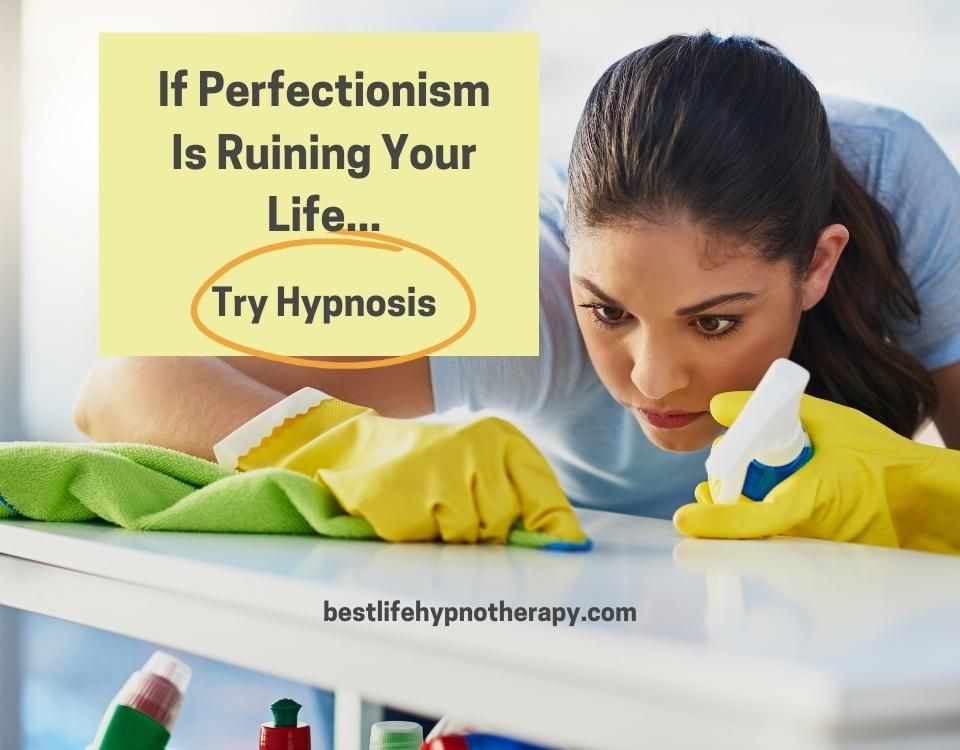
I call myself a recovering perfectionist.
When I was a little girl in grade school, I remember writing an assignment in pencil over and over again and each time, I would erase and erase. Then, I would make holes in the paper from too much erasing, so I would ball up the paper and throw it in the trash.
My mother came into my room to check on me and saw a trash can full of wads of paper and she asked me what I was doing. I remember telling her I couldn’t hand it in because it wasn’t perfect. Thankfully, my mother was trained as a child psychologist and she took out the top sheet from the trash, straightened it out, and said, “You are turning in this one.”
I was mortified, but she made me give that one to the teacher. I know now that she wrote a private note to the teacher explaining what had happened and asking for her cooperation to help me to overcome this obsession with perfection.
The truth is, I think perfectionistic tendencies never go away, but you learn to manage them. Besides, I think that they are really beneficial in some trades. For example, I am ecstatic that the contractor I used to build our casita in our backyard is a perfectionist. His structure is now my office and it could not be more wonderful for me! However, I know he drove his workmen a little nuts and ended up doing quite a bit of the craftsmanship himself on the project to make sure it met his standards.
Where does perfectionism come from? There can be so many sources of it… too many to mention here… and it’s different for everyone.
I have done quite a bit of NLP and hypnosis work on myself to discover the root cause of why I feel I need to be perfect. In deep hypnosis, I was able to go back to the womb and feel guilt for being born because I was an unplanned pregnancy for my parents. They already had two kids and we were all 18 months apart… so my financially strapped parents had 3 kids ages 3.5 and under all at once. They were overwhelmed.
It sounds so ridiculous to feel guilty for that since I had nothing to do with it, but… the subconscious mind is not logical. I somehow decided that I needed to be “perfect” or my parents wouldn’t want me.
The funny thing is… I have actually seen this “guilt for being born” come up quite a bit with my clients when we talk about why they feel the need to be perfect. It seems like it’s easy and natural for children to feel like a burden to their parents when parents are struggling. The ideal solution in a child’s mind is to be “perfect” and thereby, lessen the load. It makes sense to kids and to the subconscious mind!
I have learned to manage my perfectionistic tendencies first by being mindful of when they arise. If I am insistent on changing the tiniest details of something I’m working on, I get a second opinion from my husband to see if I’m being too extreme. If that small change really doesn’t impact the message at all, I can get to the point where I actually say… “Done is better than perfect!” And mean it!🙂
The biggest irony in my life is that The Universe gave me a child with special needs… I think it was to teach me a very valuable lesson. Perfection just doesn’t exist… we are all perfectly imperfect as human beings. We’ll all send out text messages and emails with typos from time to time… especially if Siri autocorrects. We all make mistakes. Accept it. I have.
Yes… have high standards… but make sure they are attainable and realistic.
If you struggle with perfectionism and are overly concerned with judgment… you’re certainly not alone. Reach out if you want some help with that.
Jayne Goldman, MBA, C.Ht., Founder and Principal of Best Life Hypnotherapy in Los Angeles, is a Certified Hypnotherapist and NLP Master NLP Practitioner and Coach.